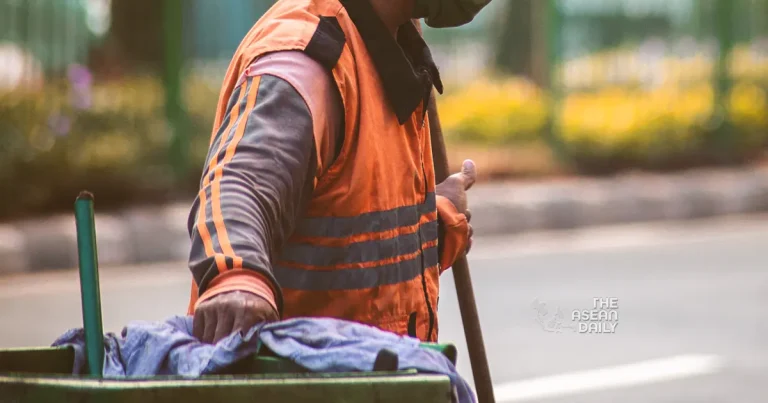4-3-2024 (SINGAPORE) In a bid to crack down on littering, Singapore is contemplating the public dissemination of images of offenders in community spaces, allowing members of the public to assist in their identification. Offenders will be subjected to legal action, including fines and court charges, according to the National Environment Agency (NEA). However, the agency assures that caution will be exercised in cases involving young children, the elderly, or vulnerable groups.
Senior Parliament Secretary Baey Yam Keng revealed that feedback on littering has increased by 15% from 2022 to 2023, compared to the period before the pandemic. He shared this information while outlining the Ministry of Sustainability and the Environment’s spending plans on Monday. As part of the crackdown, authorities intend to quadruple the number of closed-circuit television (CCTV) deployments to approximately 1,000 per year to enhance surveillance and deter littering.
The NEA plans to conduct more extensive and visible blitzes at “cleanliness hotspots.” Last year’s 21 blitzes will be surpassed, with over 100 planned for this year. Additionally, Corrective Work Orders will be implemented at hotspots, requiring recalcitrant offenders to clean public areas for a minimum of three hours. Between 2021 and 2023, approximately 1,600 Corrective Work Orders were issued.
Mr. Baey acknowledged that education efforts and campaigns have yielded positive results, as Singaporeans have generally demonstrated civic-mindedness. However, he emphasized the need to go beyond public education in addressing persistent issues. He stated, “This year, we will be working more closely with the community and ramping up our efforts to address persistent pain points…The pandemic may be over, but Singapore needs a clean environment to be well-prepared to tackle future public health threats.”
In addition to tackling littering, Singapore aims to improve public hygiene standards, particularly in public toilets. A task force, co-chaired by Mr. Baey and Andrew Khng, chairman of the Public Hygiene Council, will be established to address this issue and enhance controls against pests such as rats. Representatives from public sector agencies, town councils, trade associations, non-governmental organizations, academia, professionals, premises managers, and industry associations will form part of the task force.
The task force’s objectives include developing measures to improve hygiene standards for all public toilets through infrastructure enhancements, enhanced cleaning protocols, and public education campaigns. In 2023, nearly 240 enforcement actions related to public toilets were taken against premises owners or managers. To combat the growing rat problem, NEA plans to trial surveillance cameras equipped with thermal detection capabilities in outdoor and back-lane areas. The collected data will assist premises operators in coordinating cleaning, waste management, and rat control measures, while also serving as evidence for investigations into improper waste disposal.
Furthermore, Singapore authorities intend to streamline licensing requirements and fees for food establishments. By January 1, 2025, market stalls and vending machines selling non-food items or low-risk food items will no longer require licenses. Minister for Sustainability and the Environment, Grace Fu, estimates that more than half of the existing market stall licensees and around two in five existing vending machine licensees will benefit from this policy change. Fu emphasized that food safety for these stalls and vending machines will still be regulated through standards imposed by the Singapore Food Agency on importers and suppliers.
The food safety grading system will also undergo an update. The existing system evaluates food establishments based on an annual audit of their food safety performance but fails to adequately reflect consistent adherence to standards. The authorities plan to introduce the Safety Assurance for Food Establishments (SAFE) framework, which takes into account the establishment’s track record and prevailing food safety management systems. Establishments with poor food safety performance and lower grades will face more frequent inspections, and their failure to improve may result in downgrading.




